Juventud Rebelde 221
Donald Trump’s shameful legacy against Cuba

Donald Trump’s shameful legacy against Cuba
More than 200 measures reinforced the financial, commercial and economic blockade that accumulates six decades of a despicable and inhumane policy

Juana Carrasco Martín |Juana@juventudrebelde.cu
Translated and edited by Walter Lippmann for CubaNews.

Donald Trump’s shameful legacy against Cuba. Autor: Juventud Rebelde Published: 17/01/2021 | 12:51 am
Moving trucks leave the White House loaded with large boxes containing the occupying family’s belongings until January 19, evicted by the decision of U.S. voters and the Electoral College, no matter what the outgoing tenant Donald Trump did and did not do to stay in place.
No tricks, unsuccessful lawsuits about alleged fraud and even the seizure of Congress by its white supremacist fanatics, some armed, and willing to do anything, as the gallows erected in front of the Capitol pointed out. A Pew Research Center poll says that about 70 percent of Americans now disapprove of how he has done his job.
Trump takes his stuff, but leaves behind a legacy of worse stuff than anyone would want. I will not speak of the mishandling of the Covid-19 pandemic; nor of the internal chaos in a nation more divided than ever before; nor of the discredit of his unilateral and unconsultative policies on the international stage.
I will limit myself to the adverse legacy of injustices, aggressions, revanchist measures, outrageous decisions on the human rights of a people, contained in their policy against Cuba.
The President who is now taking office, Joe Biden, is also carrying this burden, destined during the four-year term of office to please an anti-Cuban clique, which as of January 20 will be his neighbors in Miami, in exchange for their votes and whose aim is to destroy a nation, a people, a social, political and economic system that they viscerally hate.
Over the past few weeks, Mike Pompeo and other retreating officials have exaggerated anti-Cuban actions to multiply the damage and put obstacles in the way of any reversal. In a low and final blow he registered Cuba on the exclusive, sinister and politically motivated list of “countries sponsoring terrorism,” a deliberate lie that has earned the revulsion of various personalities and organizations worldwide.
The final straw came last Friday when the Treasury Department included the Cuban Ministry of the Interior and its head, Brigadier General Lázaro Alberto Álvarez Casas, on a list of those sanctioned for “persecuting or punishing dissidents”, meaning the salaried and discredited acolytes of San Isidro.
“The United States will continue to use all the tools at its disposal to address the terrible human rights situation in Cuba and elsewhere,” said Treasury Secretary Steven T. Mnuchin.
Both measures against the clock add up to more than 230 approved against Cuba in four years of (dis)government, trying to dent and sink 62 years of resistance that serves as an example to the world and, what hurts them most, to a united nation moving against the tide.
A review, without going deeply into all the nooks and crannies of the operations from Washington to affect the economy of Cuba, allows us to define that the intensification of the blockade and the advertising of lies were centered on ruining the tourist industry, stopping Cuban medical collaboration and cooperation, closing family remittances, paralyzing investments by third parties, financing and trade of the world with and from the island.
The enforcement of all the evil instruments of the Helms-Burton Act was the tool used during these terrible 1461 days by Trump and his people, in which they reversed, or more appropriately, curtailed the policy of rapprochement inaugurated by Barack Obama when, on December 17, 2014, together with Army General Raul Castro, they announced the reestablishment of diplomatic relations, and in two years there were certain achievements of mutual benefit, in favor of a better neighborhood.
The undesirable legacy
Trump’s unseemly anti-Cuban dossier includes organizing, orienting and financing small groups to defame the Revolution and try to turn them into “the leaders” of a subversion that produces a change in the political model on the island. We have already seen how they have defended them…
But the story began early, not with this sin of an idiotic slander, but with aggressive prohibitions and sanctions, including collusion with other governments in the region to attack the Cuban economy and make it as worn out as possible, which in the last year joined the damage caused by the Covid-19.
He did everything possible to bring the situation up to his promise as a presidential candidate made in Miami to hard-line Cuban Americans, and to directors of the terrorist Cuban-American National Foundation (CANF), in September 2016: to break relations with Cuba.
On June 16, 2017, in Miami, he signed the so-called Presidential National Security Memorandum on Strengthening U.S. Policy Toward Cuba. It restricted the travel of US citizens to the Caribbean country and also prohibited economic, commercial and financial transactions between US companies and Cuban companies linked to the Revolutionary Armed Forces and the intelligence and security services.
The ban on cruise ships that successfully traveled to Cuban ports was among the first restrictive measures. They reaffirmed the exorbitant fines on companies that violated the blockade – a practice reinforced by Obama – and strictly enforced the ban on the use of the dollar in Cuba’s international transactions.
By November 2017, Trump had completely changed the policy on U.S. travel to the Caribbean nation, which, with the easing of the previous administration’s blockade rules, allowed 12 categories of specific activities, although tourism remained prohibited.
As a result, the airlines began to shut down travel to Cuban airports, which had been resumed on August 31, 2016, after 55 years of isolation. Other bans followed. On December 10, 2019, the Trump administration ended the bridge established three years ago between the US and several provinces in Cuba by suspending regular flights to those destinations except for Havana.
In addition to being a coup de grace against family ties and the state tourism industry, the impact on small private businesses (transportation, the well-known palates, rental houses, artisans, and many other businesses) directly or indirectly linked to tourism was notable.
Since assuming the presidency of his country, Trump extended, year after year, the Law of Trade with the Enemy, a regulation that serves as the basis for the blockade laws, and maintained his authority to sanction through executive decrees.
By establishing sanctions against the Venezuelan oil sector, Trump was also establishing a measure to deprive Cuba of fuel with the intention of delivering a coup de grace in the midst of the terrible 2020, which together with the decision to re-impose the limit of up to ten percent on U.S. components for products that the island can import, points against any development sector.
The Trumpist push to impose limitations of all kinds was made despite the fact that U.S. legislators and various economic sectors rejected the restrictions, which hardened the economic, commercial and financial blockade imposed by Washington against Cuba, which also hurt sectors of the U.S. economy and the rejection of the blockade by a part of the Cuban migration wishing to have no obstacles of any kind to their family relations.
Perhaps one of the most monstrous actions linked Trump to equally aberrant rulers in our hemisphere. The accusations against Cuban medical cooperation justified countries like Brazil, Bolivia under the coup d’état and Ecuador, closing the doors to solidarity and also to the right to health of the most humble of their peoples by putting an end to the agreements that made possible the presence of hundreds or thousands of Cuban doctors, and put pressure on others to follow that inhumane path in the midst of the pandemic.
Trump definitely closed down spaces for dialogue and cooperation, and any possibility of advancing, as intended, toward a “civilized coexistence”.
This is, in short, the abusive legacy that Donald Trump leaves to Joe Biden.
One Story, Multiple Readings

One Story, Multiple Readings
Published: Tuesday 12 January 2021 | 08:41:40 pm
When talking about the Middle Ages and Antiquity in Europe and its nearby territories, it seems that women were always subject to male power
Author: Mileyda Menéndez Dávila

Translated and edited by Walter Lippmann for CubaNews.

Viking culture promoted equity between men and women. Author: Taken from www.filo.news Published: 12/01/2021 | 07:57 pm
When talking about the Middle Ages and Antiquity in Europe and its nearby territories, it seems that women were always subject to male power, without the right to participate or manipulated in government debates, relegated to the role of feeding themselves, excluded from war, science or other basic functions for the human group to which they belonged.
This is what those who consider the concept of equity as a recent “invention” say, and how they describe matriarchy as a system of male slavery and humiliation.
Recent archaeological findings and new readings of ancient texts from a feminist perspective agree that, although misogyny and patriarchy were widespread in many regions with similar expressions, there were civilizations in which women lived alongside men and played important social roles.
Supposedly barbaric and backward cultures, such as that of the Vikings and the one that inhabited India before the Aryan invasions, left evidence of a respectful and even venerable treatment of women and people of non-binary gender in their beliefs, traditions and social structure.
Preserved manuscripts from those times and legends that have survived orally indicate that in addition to respecting the right of women to decide about their bodies and to choose partners of any caste, an infinite number of tribes and clans validated non-heterosexual practices (common among warriors and priestesses), and ambivalent gender identities, visible in graphic representations of everyday life and of their gods and goddesses, which also abounded.
Respectable evidence
In the case of the Vikings, the journal Economics and Human Biology published a study that correlates the nutritional health of the Scandinavian population between ten and 15 centuries ago with the social values that intended equity by gender and age.
Biochemical tests confirm, by the quality and development of the bones found in several settlements, that women were free and active, and from birth they ate at the same time as adult men, not at the end.
Many were trained for war, fishing and hunting, led groups and inherited positions and properties. The most revered were the Valkyries: large women who collected dying and dead bodies in battle to help them move, according to their traditions, into the eternal and sacred world they called Valhalla.
Those customs of the Nordic “savages” were a shock for the descendants of the Greco-Latin culture, who built palaces and roads, dominated the arts and agriculture, but in their cultured cities women had no right to study or own property, did not talk to other men and could be given away as servants by their fathers, brothers, husbands and sons.
The legislations of the current Nordic countries, heirs to the Viking culture, guarantee effective and palpable justice without gender discrimination, while many states born of the Judeo-Christian forge cling to a patriarchal hierarchy in homes and social spaces that has unleashed many wars and justified discrimination for hundreds of generations.
Other archaeological findings of the mid-twentieth century in well-preserved ancient cities, but hidden by nature, confirmed the respect for women as a source of life in the Indus civilization, without such deference to represent for men an economic or social disadvantage, as told in the book Tantra, the cult of the feminine, which we can provide to our readers by digital means.
That tradition of honoring the Mother as a social being (not only as a producer of labor) disappeared with the caste system imposed after the northern invasions, when girls and women became, along with the cattle, a resource to be exploited by the conquerors to survive in hostile terrain and to adapt genetically to the climate.
Also in pre-Columbian America and the original African societies there were stages and cultures in which women flourished alongside their male counterparts. As in other processes of conquest throughout the world, were the hosts “civilizing” which established the male hierarchy to control the lines of inheritance in the territories razed.
By (re)knowing these versions of common history, humanity is better able to write its present and place dignity as the essential value promoted by the Magna Carta of almost all nations.
Cuban journalist Albor Ruiz has passed away

Cuban writer and journalist Albor Ruiz has passed away
He worked hard from the United States to achieve the Dialogue of 1978, a space that marked the beginning of an irreversible process of rapprochement between Cuba and its emigrants
Author:

Web Editor | digital@juventudrebelde.cu
Translated and edited by Walter Lippmann for CubaNews.
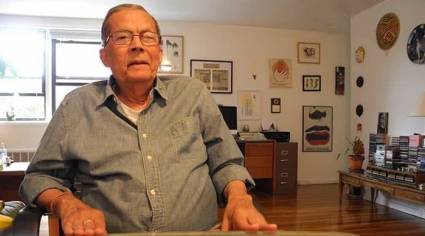
He had, in the words of the Progreso Semanal editorial, “a life rich in many adventures and deep commitments” with the Homeland. Author: Internet Published: 09/01/2021 | 05:10 PM
his Friday night, January 8, Albor Ruiz Salazar died of severe pneumonia at Homestead Hospital in Florida.
He left Cuba at the age of 20 on November 20, 1961. He studied Political Science and Philosophy in Florida. He was a columnist for the Daily News and El Diario La Prensa in New York, writing about issues related to the Latino community in the United States, while he lived in that city, and more recently, for AL DÍA News Media. He is a member of the Hall of Fame of the National Association of Hispanic Journalists in the U.S. But his most prolific work was in defense of the land of his birth and his people. Albor Ruiz, who turned 80 years old on Nov. 27, had, according to the Progreso Semanal editorial, “a life rich with many adventures and deep commitments” to the Homeland.
He played an outstanding role in organizing the movement of young Cubans who gathered around Areito. He was one of those who worked hard from the United States to achieve the Dialogue of 1978, a space that marked the beginning of an irreversible process of rapprochement between Cuba and its emigration. In this regard, Albor himself said: “Returning to Cuba was to remove a huge, gigantic weight that had been crushing me all along. It was a brutal change. Even more so when, without realizing it, the kind of propaganda that they make in the United States about Cuba is getting through to you, even though you know it is a lie, and you do not agree. But when I arrived and saw that, despite the tremendous problems, people were going to the movies, eating ice cream, having parties in the blocks with the children, the old people, the Chinese, the blacks, etc. For me it was a tremendous relief, I don’t really know how to explain it. I felt that these were my people.
As a result of that love and deep commitment to Cuba, he published his book of poems “In case I die tomorrow.
“Back to the Soil, Cuban Land
I am a foreigner and she calls me
Everyone knows that Cuba claims me
In case I die tomorrow”
(excerpt from the poem “Por Si Muero Mañana”, by Albor Ruiz)
Please accept our condolences to his family and friends.
Sixty-two years of building “heresy”

Sixty-two years of building “heresy”
Exactly five years, five months and five days after the actions of July 26, 1953, the Revolution finally came to power
Published: Thursday 07 January 2021 | 08:06:05 pm.
Author:

Elier Ramírez Cañedo | digital@juventudrebelde.cu
Translated and edited by Walter Lippmann for CubaNews.
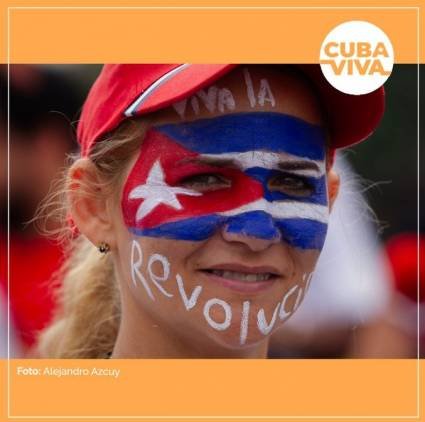
A cry for freedom that inaugurated a new stage of the struggle for independence in our country. Author: Alejandro Azcuy Published: 07/01/2021 | 07:06 pm
A truck full of explosives in Washington, D.C.

Police found a van full of explosives and weapons near the Capitol on the day of the riots
A 70-year-old man is charged with possession of eleven Molotov cocktails, as well as an assault rifle and three handguns
By Russia Today
digital@juventudrebelde.cu
Translated and edited by Walter Lippmann for CubaNews.

Led by Trump, his followers forced their way into the Capitol in Washington. Photo: Reuters Published: 01/06/2021 | 11:02 pm
The District of Columbia Attorney’s Office has filed charges Friday against an Alabama man who allegedly parked a van with 11 Molotov cocktails and other weapons near the Capitol on Wednesday, the same day of the congressional riots.
According to the statement from the Attorney General’s Office, on January 6, Capitol Police officers were warned of the possible presence of explosive devices in the area surrounding the legislative seat. During a protective sweep of the area, agents observed the handle of what appeared to be a firearm in the passenger seat of a pickup truck, which, according to their database, belonged to Lonnie Leroy Coffman, a 70-year-old man from Falkville, Alabama.
When they proceeded to search the vehicle, the police found a pistol, an assault rifle, as well as rifle clips loaded with ammunition and components for the manufacture of eleven Molotov cocktails (glass jars filled with flammable substances, rags and lighters).
Later, Coffman was stopped near his truck when he tried to return to his vehicle. When he was searched, he was found to be carrying two other guns.
The man has been charged with illegal possession of a destructive device, which carries a maximum prison sentence of up to 10 years, as well as carrying an unlicensed gun, which carries a maximum prison sentence of up to 5 years. Coffman remains in custody pending a hearing scheduled for Tuesday, January 12.
Donald Trump’s Dark Path

Donald Trump’s Dark Path
An unacknowledged or reluctantly-admitted defeat, and a forced commitment to a peaceful transition of power, are still far from the final closure on the chaos
Translated and edited by Walter Lippmann for CubaNews.

Trump incited them and his followers left for the Capitol. Photo: AFP Published: 07/01/2021 | 08:29 pm
The United States has experienced a very bitter drink of the acíbar [aloe juice] or purgative that has made other nations of the world drink more than once with names of seasons or colors. As an unusual fact for the idyllic image with which the American democracy has sold itself and deceived the planet throughout three centuries, we have witnessed an insurrection of the most extreme and violent ultra-right, determined to maintain the political power of he who is its image and likeness.
Memories of January

Memories of January
 By Graziella Pogolotti
By Graziella Pogolotti
Translated and edited by Walter Lippmann for CubaNews.
It seemed symbolic. The triumph had come with the new year. This time the rebels had entered Santiago and the invasion from East to West took place, led by Camilo and Che. From the remotest places in the world, looks turned toward the little Archipelago, so far unknown.
The overthrow of the dictatorship, which had a professional army trained and armed by the empire, overturned predictions of specialists, rectified by the bearers of common sense. It was the result of a strategy elaborated from a deep knowledge of the historical development of the country, of the analysis of the determining factors of yesterday’s setbacks and of the real contradictions latent in the background of the society. From this stratum was born the victorious popular army that, with its mane [hair], beard and necklaces, showed the unprecedented face of the nation.
For some, it was all over. In the midst of the general euphoria, Fidel was quick to point out that the most difficult battle had just begun. The project of social justice and the conquest of full sovereignty would encounter numerous obstacles. It would imply, among other things, an urgent task of collective learning, of acquiring the first letters to open up paths to science and culture, of understanding where we come from and becoming aware of the place we occupy in the world, because the conflict between exploiters and exploited is reproduced on a planetary scale.
To carry out this collective learning, thought, word and action were brought together into a single beam. The propitious environment was the multitudinous Plaza de la Revolución, but also the TV, a medium that favored the most intimate communication and accentuated the dialogic character of Fidel’s speeches.
In every circumstance, he would reveal the causes of things and from the tumult of ideas, the way to face problems would emerge. No matter how hard it was, the truth had to be shown in its clearest profiles. So it was with the unwavering defense of principles during the dramatic days of the October Crisis and much later with the early prognosis of the possible collapse of the Soviet Union.
With its tiny oligarchy subject to the interests of the empire, Cuba was carrying the scabs of the colony, denounced years ago by Rubén Martínez Villena. It was a destiny shared with many countries that, at the turn of the ’50s of the last century, were fighting to break the old ties. In the United States, the struggle for civil rights was gaining strength. It was not long before the Vietnam War produced a process of radicalization in the emerging generalization. Added to the anti-racist demands were the demands of women and those discriminated against because of their sexual orientation.
In the United Nations, Cuba’s thoughts and words became an emancipatory voice. In an extensive speech that broke the established rules of the game, Fidel warned about the dangers derived from the imposition of neo-colonial forms of domination in the countries that had just gained political independence. His speech kept an expectant audience in suspense. At the Theresa Hotel in Harlem, he received the visit of outstanding personalities of the national liberation movement.
The murder of Patrice Lumumba, captured and tortured, was a sad example. Amilcar Cabral, one of the most lucid African leaders, disappeared. Che fell in Bolivia. The coup against Salvador Allende frustrated his reformist project and with the dictatorship of Pinochet, established by the Chicago boys, through the use of violence, the neo-liberal doctrine. In this way, transnationalized big capital imposed, a new form of colonial appropriation. The consequences are visible in Latin America with the growth of inequality and the exercise of violent practices aggravated by the expansion of drug cartels, the trafficking of persons to which those who aspire to emigrate succumb. The neoliberal resurgence also undermines the welfare policies implemented in the First World as safeguards against the model of a socialist perspective in Eastern Europe.
An attentive and critical observer of the passing of the contemporary world, Fidel warned early on of the dangers looming over our species. His call at that time transcended borders and ideologies. But the depredation of the planet has continued at an accelerated pace.
Apparently dispersed in discourses born from concrete circumstances, free from dogmatic ties, Fidel’s thought was prorojected with remarkable organicity and coherence, to the point of constituting an indispensable tool to continue accompanying us today.
With his ear attentive to the rumors of the earth, his vision encompassed the essential features of the planet’s events. Never axiomatic, he always went through the complex twists and turns of analyzing reality. We cannot fragment it. It is up to us to rescue it in its entirety.
What Trump Leaves and What Awaits Biden

What Trump leaves and what awaits Biden
The times are not good, and any political, social or economic agenda of a beginning President must be subject to the dictates of confronting the COVID-19 pandemic plus the vicissitudes of a very complicated Trumpian legacy
Posted: Saturday 02 January 2021 | 06:10:07 pm.
 By Juana Carrasco Martin
By Juana Carrasco Martin
Translated and edited by Walter Lippmann for CubaNews.

The victory to Joe Biden despite not being charismatic, and then made him categorically assert in an opinion article in The New York Times at the beginning of last August that “The keys predict that Trump will lose the White House Author: Victor Manuel Published: 02/01/2021 | 05:47 pm
Allan Lichtman, professor of history at American University, was also not wrong in predicting the winner of the 2020 presidential election. His record of accurate predictions, which dates back to 1984, remained intact.
The clues worked, which he explained in an interview with The Morning Show on Wisconsin Public Radio, why they were giving Joe Biden the victory even though he was not charismatic, and which then made him state categorically in an opinion piece in The New York Times in early August that “The clues predict that Trump will lose the White House:
The terrible numbers of the coronavirus pandemic, the national movement of protest against police brutality and systematic racism, the social unrest and economic collapse that erased the economic gains Donald Trump was presenting until the
Covid-19 appeared on the scene.
To tell the truth, Trumpism and its mishandling of the unexpected situation of this fateful 2020 and its aftermath, defeated the tycoon who administered the United States for four years as if it were an enormous capitalist monopoly, and not the imperial representative of big business that must follow the rules of the game because it is a showcase of democracy.
Without a doubt, the pandemic is rising as the giant to be faced by the elected president, although he already has the weaponry of the vaccine. A population of more than 300 million inhabitants is not immunized -what remains to be seen effectively- in a flash, therefore the numbers of those infected and killed and their consequent involvement in the country’s economy will continue to grow.
Without a doubt, the first months of Joe Biden’s administration will be torturous, and he does not have a Congress in which the Democrats, while retaining a majority in the House, will have to fight tooth and nail in the Senate.
Now, the legacy that Donald Trump leaves behind is much more notorious and damaging, because he led the United States into a state of extreme polarization and manipulated a good part of the American people in such a way that his faithful followers and the 74 million Americans who voted for him have accepted impunity and the existence of the swamp of corruption at the highest levels of the nation and of the power elites, even though one of his campaign promises was to end the “Democratic” swamp.
The pardons of these final days of his presidency speak for the clarity of that quagmire, when a good part of the pardons and annulments of sentences are for people very close to their political or family environment, faithful to their actions, millionaires who have committed tax fraud and other economic crimes.
An “achievement” of Trump, completed this one in the year 2020 will probably give a substantial turn to the legality towards the right. He appointed three Supreme Court justices – a lifetime appointment – and 25 percent of the federal judiciary. In doing so, he has reversed or broken the balance of federal appellate courts and, in the case of the highest court, could result in an alteration of the government’s regulatory power, the right to abortion, and the immigration law, to name three that are under debate and in the face of which the positions of the outgoing president, who will be sworn in on January 20 as the nation’s 46th president, are diametrically opposed.
According to judicial experts, and Democrats in particular, this is a takeover by the more conservative wing of the Republicans.
How will Biden deal with the very serious problem of institutionalized racism and its most public and violent expression, police brutality? Not a few analysts believe that the extreme white right promoted by Trump will persist in asserting its “right” to supremacy.
While Trump could not build the physical wall with Mexico, nor make his southern neighbors pay for it, since the cost of the remodeled areas and the little that was new took it out of the pockets of U.S. taxpayers, the restrictions he imposed on immigration have more than made up for that fence and it will have to be seen how the coming administration undoes them or how the judiciary keeps them in check, but he owes it to the Latino population and to the dream of millions of undocumented people that Trumpism turned into a nightmare.
In any case, Biden, whose motto was to recover “the soul of the nation,” faces an enormous challenge because that nation is divided and not precisely by a line of the color of the parties, but one that puts liberal democracy in check, with the promotion of distrust towards government institutions, the press, science and the electoral process itself.
Biden, on the other hand, was forced to wink at American progressivism and within the Democratic Party and must also comply with them, or at least try to do so, and there are not a few matters to approve of, nor are they easy.
Among them are education – only with the insurmountable debt of the university students will he have a good headache -; public health, which the Covid-19 has called into question, should introduce universal public insurance; organized labor, when unemployment reaches millions of Americans, hit by the closing of businesses of all sizes and sectors of the economy, and where the demand for the minimum wage will return with force.
Taxes cannot be absent from that list – when the reductions executed by Trump served to make the richest people benefit highly from 60 percent – and now it could not fail to benefit those with the lowest incomes, workers, ethnic minorities, women, immigrants.
A 180-degree turnaround is now mandatory on key foreign policy issues and on relations with allies, friends, and even adversaries. A field in which Trump has sown tensions and economic wars.
In some cases it will be “easy” for him, such as returning to the Treaty of Paris, the World Health Organization, restoring civilized exchanges with his allies in the European Union and NATO, among others.
Not so with respect to Iran, China, Russia, even Latin America, where renewed airs of sovereignty are returning in some countries and with them of integration.
How much it will maintain from the policies of sanctions, from the commercial wars, established with high tariffs that not only confronted the US with the Asian Giant and other adversaries, but also political and strategic allies for that vision of fierce business competition that prevailed for four years in the White House.
Will Biden be able to respect the right of the Palestinian people by reversing Washington’s embrace of Netanyahu’s apartheid?
There’s plenty of room to cut through, and we’ll have to wait for the new president’s first steps. One thing is certain: 2021 will not provide an answer to all the uncertainties, since the Covid-19 will continue to implement rules.
However, the clouds of four years of trumpism will not be easy to clear. Economist and columnist Robert Reich has said that the most vile legacy that Trump will leave is the acceptance of its behavior, and practically half of the American population seems to be enrolled in that list.
History of a medical feat

History of a medical feat
Maylín and Mayelín Téllez Bruzón were born on December 18, 1973, united by the abdomen and were the first Siamese twins to be successfully separated in Latin America
 Author: Juan Morales Agüero | juan@juventudrebelde.cu
Author: Juan Morales Agüero | juan@juventudrebelde.cu
December 19, 2020
Translated and edited by Walter Lippmann for CubaNews.

When they turned 15, Dr. Vazquez Fernandez accompanied them in the celebration. Author: Norge Santiesteban Published: 19/12/2020 | 12:07 pm
Las Tunas – At 3:00 pm on December 18, 1973, the phone of Dr. Rafael Vazquez Fernandez, a surgeon at the Hospital Vladimir I. Lenin Hospital in Holguin, began to ring with insistence. “Good afternoon, tell me,” answered the doctor when he picked up the phone. “Dr. Vázquez? -Yes, this is Dr. Hernández Ojito from the Victoria Maternity Hospital in Las Tunas. A woman has just given birth here, Siamese twins. Would you help us evaluate them?”
The news took his breath away. “Siamese twins! -exclaimed the also professor of surgery at the Universidad de Oriente. You don’t see that much in Cuba. And he recalled having read that the highest proportion of twin births is among the Yoruba in Nigeria, where almost one in every 22 births is a twin.
Dr. Vazquez Fernandez didn’t think twice: “I’m going there,” he said before hanging up. Minutes later, he boarded a car, took the road, devoured the 70-something kilometers [43 miles] that separated him from Victoria de Las Tunas and in a matter of an hour and a half he was on the ground in front of the health institution of the neighboring province. Not by a long shot did he suspect that days later he would star, along with other specialists, in an event of unusual transcendence in the history of Cuban and Latin American medicine.
The preliminary assessment
In front of the Mártires de Las Tunas hospital, his colleague Hernández Ojito was waiting for him. He had attended the multiple birth together with pediatrician Clara Bisquet and doctor Orlando Zaldívar. Without wasting a minute, they went to the room where the little Siamese girls Maylín and Mayelín Téllez Bruzón – each weighing six pounds – were taking their first nap on earth, joined at their abdomens.
The preliminary examination concluded that their separation could be attempted. They requested an ambulance and left for the Lenin Hospital in Holguin, opened eight years earlier. “How much times have changed,” said Dr. Vazquez Hernandez. And his thoughts went back to the time of the Hindus of the 16th century, who incinerated Siamese creatures as soon as they came to life.
Already in the City of Parks, a multi-disciplinary team was formed to study the feasibility of separating girls through surgery. Anesthesiologist Pura Avilés, pediatrician Félix Álvarez, hematologist Norberto Rodríguez and doctor Vázquez Fernández performed cardiovascular, hematological, genetic, blood gas and radiological tests on them.
The results were encouraging. All that remained was to consult the parents. “Success is possible, but it can also fail. Do you agree to the operation?” they were asked. And they agreed.
For the first time in Latin America, an intervention of this kind would be carried out. Other cases in the world appeared in the literature, but not identical. The foundational separation of Siamese twins took place in France in 1689. They were united by the navel. And if we are talking about Siamese twins, the oldest were the English Mary and Eliza Chulkhurst, born in 1110. They lived 34 years with a single pair of upper and lower limbs, a rectum and a single vagina.
Meanwhile, the most famous conjoined twins were Chang and Eng Bunker, born in 1811 in Siam, today’s Thailand. They lived to be 63 years old. Doctors refused to operate on them because they had… a common liver! They both married and had 10 and 12 children, respectively. Chang was the first to die. A few hours later Eng died. Since then the term Siamese designates this type of twins.
A medical feat is accomplished
But let’s continue with Maylin and Mayelin. At midnight on December 27, 1973, the surgical procedure began and lasted almost two hours. An atmosphere of great expectation was felt in the rooms surrounding the operating room. Bohemia magazine reported this in a memorable article: “For the first time in the history of medicine in Cuba, the complex task of operating on two people at the same time in the same room, and, in this case, on two small creatures only nine days old, and closely connected by the abdominal region, was undertaken.
Two groups were formed to provide differentiated care to the Siamese twins during the surgery. In the first, Doctors Vázquez Fernández, Hernández Ojito and Viamonte would assume the separation. In the second, on a parallel table, Doctors Cabrera, Velázquez and Abadía would be in charge of reconstructing their abdominal walls, once they had been separated.
“We operated with an electric scalpel, which cuts and prevents bleeding,” said Dr. Vazquez Fernandez later. We faced three tense moments: the opening of the abdominal cavity, the cutting of the xiphoid appendix, and the section into two equal parts of the common liver. This organ, by the way, had independent systems for each girl. Otherwise, the operation would have been fatal for one of them. All obstacles were overcome.
The prestigious anesthesiologist Pura Avilés also referred to her experiences at that time. “We faced another extremely challenging technical difficulty when proceeding with the endotracheal intubation of the creatures. It happened because of the proximity of their faces and because of the unwieldy heads. But we were able to solve these problems as well.
It was a resounding and resounding victory. The Holguin newspaper ¡Ahora! in the edition of January 5th, 1974, highlighted in a great headline of its front page the unusual event: “GREAT SUCCESS OF CUBAN MEDICINE”. According to the specialized literature, it was the 132nd surgical intervention on Siamese women in the history of humanity. Ours, as it has been said, were born by natural childbirth, but united from the xiphoid appendix to the umbilical region.
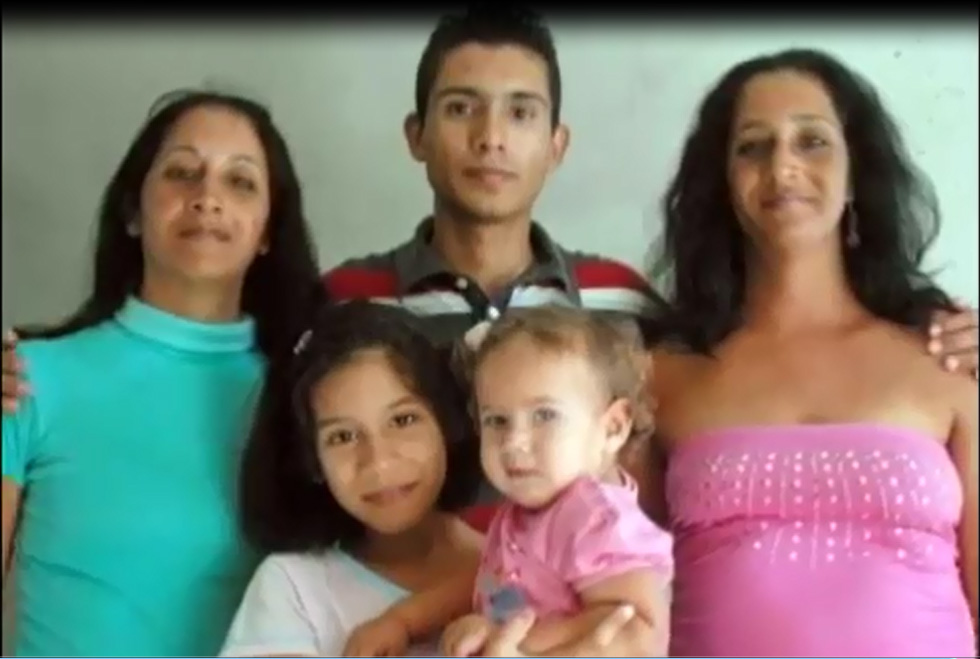
Motherhood was another of the prizes that life offered Maylín and Mayelín. Photo: Norge Santiesteban
Today Maylín and Mayelín are two completely normal women, who this December 18th, turned 47 years old. Both continue to reside without setbacks or consequences in their native Las Tunas. In addition to granting them strong health and notoriety, life also offered them the joy of being mothers. “At present, we don’t live together, because each one has her own family,” says Mayelín. But we visit each other frequently and are aware of each other to help each other if necessary. Maylín, for her part, remembers that “we lost our mother a few years ago. She always wanted us to be together and that is what we do”. The separation of the Siamese from Las Tunas is recalled in a sculpture erected at the School of Medical Sciences in Holguin. It’s a tribute to a feat of Cuban medicine that began to be shown on December 18, 1973, when the sound of Dr. Vázquez Fernández’s phone ringing augured something that still fills us with wonder.
Argentina in the year of the pandemic

Argentina in the year of the pandemic
As everywhere else, the arrival of SarsCoV-2 has hindered Peronist management in its return; but this has not hindered a social task that has struggled to impose itself on the economic ballast during its first year in office
 Author: Marina Menéndez Quintero | marina@juventudrebelde.cu
Author: Marina Menéndez Quintero | marina@juventudrebelde.cu
December 12, 2020
Translated and edited by Walter Lippmann for CubaNews.
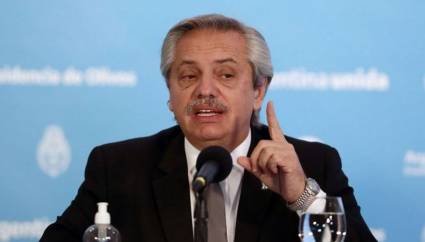
Alberto Fernandez believes he will be able to raise Argentina again, as he did in 2003 when he was Nestor Kirchner’s right-hand man. Author: Getty Images Published: 12/12/2020 | 08:21 pm
The debates to legalize the voluntary termination of pregnancy close the legislative year and, also, the list of relevant events noted in Argentina during the first 12 months of the Peronistas return. But the events that will most mark the life of the nation are in the economy and in society itself, at the mercy of both, like everything in this world, of the scourge and the confrontation of the pandemic.
The interruption of the pregnancy will be the last vote that the Senate will take on the 29th of this month after its approval in the House of Representatives, which could lead, if it is approved, to the fulfillment of one of the most important campaign promises of the executive that Alberto Fernandez presides over.
And although the issue is attracting the attention of defenders and detractors, it is discussing spaces in the media with the arrival, in the first two months of 2021, of ten million doses of the vaccine against Covid-19. This was negotiated with Russia through the direct intermediary of President Vladimir Putin to help a country that is accumulating more than 40,000 deaths from Sars-Cov-2, despite the efforts of the government in the care of the disease and the sick.
It could be said that the outbreak of the pandemic in March, barely three months after the arrival of the Front of All to power, has passed through his presidential administration at the beginning, to the point that the Head of State has declared that when history is written he will be remembered as “the president of the pandemic”.
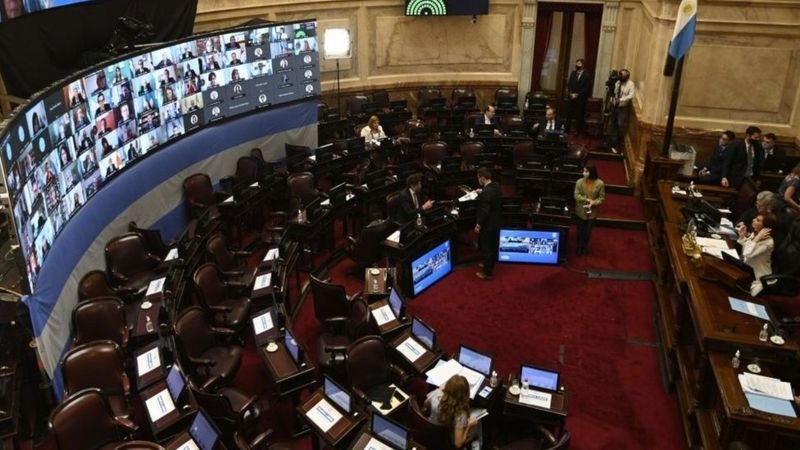
The Argentine Senate also approved the Law of Solidarity and Extraordinary Contribution to Covid-19. Getty Images
Confronting the coronavirus has been much more difficult for a nation that was left, as Argentines often say, “in intensive care” by Mauricio Macri’s terms and was therefore in a worse position to face a crisis that has continued to rage.
In October 2019, still in the middle of Macri’s administration, the official National Institute of Statistics and Census (Indec) reported that poverty had risen to 35.4 percent and destitution to 7.7 percent.
That was the scenario where the restrictions imposed against the risk of contagion were primed, so that at the end of the first half of 2020, Indec reported another slight rise in poverty by five percentage points to 40 percent. Meanwhile, the price of the basic basket rose by 20 percent: nine percent more than the increase in total family income which grew by 11 points, so that families living standards continued to decline .
The substratum was visible in the macro numbers left by Macri. At the end of his two terms, inflation had escalated from 25 to 50 percent annually, the accumulated peso devaluation was 540 percent, reserves had become thinner and, worst of all, the foreign debt was equivalent to 95 percent of the GDP in a country that was not growing.
Argentina was in virtual default.
Faced with this reality, the impact of what was the biggest challenge and now also the biggest success of the new government is not yet visible: the renegotiation of 99 percent of the debt bonds held by private holders, an agreement that saved the country from default and set sail so that, despite everything, the ship would sail again.
The rescheduling of payments – as the young and talented Minister of Economy, Martín Guzmán, is accustomed to say, because only the terms have been distanced but Argentina will pay – was completed in September and, although it may have passed by in the midst of the contingencies unleashed by the Covid-19, it can be considered transcendental. Paying interest on the debt, it was impossible to think of any plan for national revitalization.
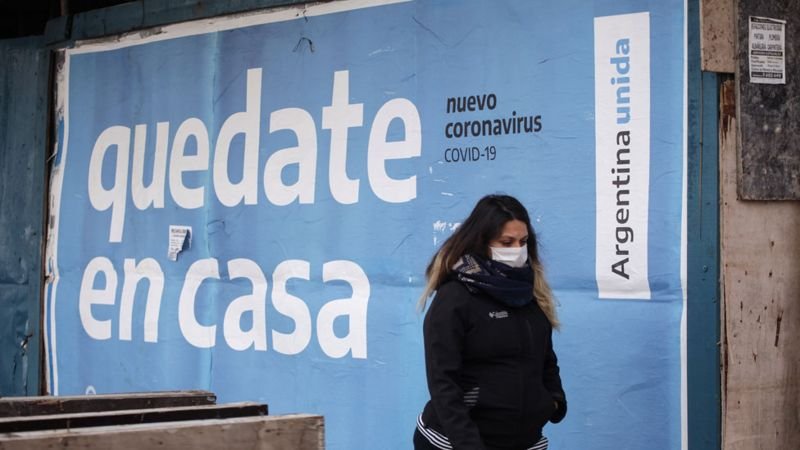
The arrival of the coronavirus added to other problems already facing Argentines. Photo: Getty Images
The payment of $66,137 million dollars of debt under foreign legislation in ten years was restructured with a deduction of around 60 percent, so that only the debts agreed to with the International Monetary Fund itself, relatively “comprehensive” now but responsible for an unpublished disbursement approved by Macri of 57 billion dollars, of which $44 billion were received. Despite its cooperation in the process with the bondholders, the Fund will try to negotiate with the government by imposing prescription books that the Argentine executive does not want to accept.
The successful negotiation with the private sector made it possible for the legislature to approve last month an ambitious and optimistic budget for 2021 that contemplates the forecast of 5.5 percent economic growth after the 12.1 percent collapse of the year that ends,. Inflation is projected to decelerate from 32 percent reported this year, to 29%; and a primary deficit of 4.5 percent, among other aspects.
Martin Guzman, who is responsible for the plan already approved by Congress, has said that this will be one of the elements he would use to negotiate a new program of extended facilities with the IMF.
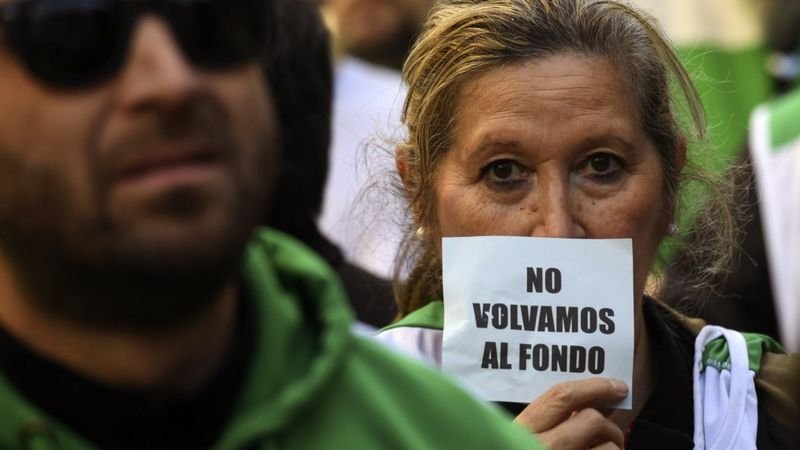
The interventions of the IMF in Argentina have been popular rejected. Photo: AFP
Offering the shoulder to the people
But the benefit that some of this brings is not yet visible today, when the adversity of the economic figures has been lessened by the government with social measures, aimed at making the burden on the people less heavy.
This shouldering of the burden must be responsible for the fact that, in spite of the sorrows, the executive headed by Alberto and former President Cristina Fernández closed the year with popularity ratings that give more than 50 percent support to the president.
A neoliberal ideologue bent on discrediting him would call it “populism”; but such thinking about people is precisely what offers the nuances that differentiate the models from the socio-political point of view.
Among these measures is the Law of Solidarity and Productive Reactivation, which suspended the formula for adjusting pensions and retirement pensions, and promoted their stability. Also, there is the increase of withholding taxes on exports, the freezing of public service rates throughout the year, the creation of the so-called PAIS Tax on purchases with dollars in order to increase savings, and the increase of taxes only on those who receive more income.
In addition, steps were taken to strengthen local production chains in order to make products cheaper, and it was decided to create a food card that will monitor the nutritional quality of families.
Interviewed by the alternative media El Destape, Alberto Fernandez has confessed the rigors of governing a country that received in crisis and then has vilified the coronavirus. But he has also shown that he feels at ease.
During the last three months, income has exceeded inflation by almost three points, he said. Industries such as the automotive industry produced 20 percent more in November than in the same month last year, and reports state that “in the most popular neighborhoods, where people need it most, demand in the dining halls has fallen,” he said.
“So I say, I was not wrong.
Subscribe to Blog via Email
| M | T | W | T | F | S | S |
|---|---|---|---|---|---|---|
| 1 | 2 | 3 | 4 | 5 | 6 | |
| 7 | 8 | 9 | 10 | 11 | 12 | 13 |
| 14 | 15 | 16 | 17 | 18 | 19 | 20 |
| 21 | 22 | 23 | 24 | 25 | 26 | 27 |
| 28 | 29 | 30 | 31 | |||


You must be logged in to post a comment.